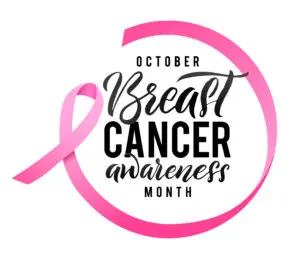Do you wake up every morning thinking about preventing breast cancer in your everyday life? We seriously doubt it, but if you are someone with a higher risk for breast cancer due to your family or your age, maybe you should consider paying more attention to preventative strategies. There are some simple and specific changes you can make to help lower your risk for breast cancer.
Eat a Healthy Diet
We hear how important a healthy diet is all the time, but in this case it can make a big difference. Most recommended is the Mediterranean diet that is filled with more fish and less red meat, lots of fruits and colorful vegetables, virgin olive oil instead of butter or margarine, plus nuts and grains. Combined with exercise, this diet can serve to keep you at a healthy weight too.
Maintain a Healthy Weight
Here’s another mantra that seems to pop up all the time. That’s because it matters. Being obese or overweight takes a toll on our bodies in many ways. That extra weight can actually increase the risk of developing breast cancer, especially in women after menopause.
Stay Active No Matter Your Age
Exercise of any kind can only be beneficial. Walking, running, lifting weights, and riding a bike all help a person to lower their risk of developing breast cancer. A minimum of 150 minutes of activity a week is recommended for most healthy adults.
Limit Alcohol Consumption
You are at greater risk for breast cancer the more you drink. The American Cancer Society recommends women who drink should have only one drink per day. That means 12 oz of beer, 5 oz of wine, or 1.5 oz of liquor. Enough said.
Don’t Smoke
Research suggests there is a link between smokers and breast cancer, especially in premenopausal women. If you don’t smoke, don’t start!
Limit the Duration of Hormone Replacement Therapy
A word to the wise if you are entering menopause, you should know that HRT can affect your risk for breast cancer. If you stay on HRT consistently for 3 to 5 years, it can increase your risk. You can ask Associates In Women’s Health to lower the dose or recommend other options for you.
Follow Guidelines and Take Preventative Action
Follow the standard recommendations for getting mammograms, seeing Associates In Women’s Health at regular appointments throughout the year, and doing self exams to look for any changes to your breasts.
Maintaining a healthy lifestyle will not only help to protect you from getting breast cancer, but it will improve your chances of survival should you be officially diagnosed. You can’t change your family history, but you can control how you live your life.
Contact your gynecologist Associates In Women’s Health if it’s time for your mammogram or if you have noticed a change in your breast tissue.
As always, if you have any further questions or would like to schedule an appointment, please call (402) 697-7200 today!

